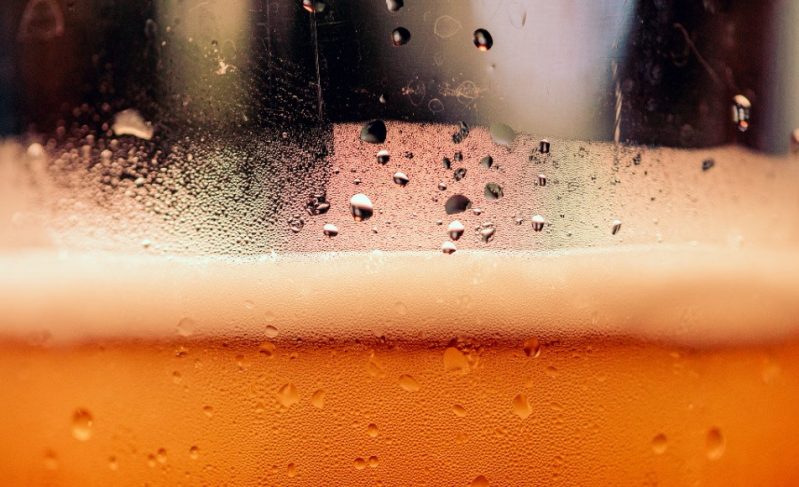Can You Guess What the World’s Oldest Recipe Is?

© Timothy Dykes / Unsplash
Food has always been a central part of human culture and history. Recipes have been passed down through generations, evolving and adapting to different tastes and traditions.
But, have you ever wondered what people were cooking thousands of years ago? What ingredients were they using and how did they prepare their meals? The world’s oldest recipe may hold the answers to these questions and provide a glimpse into the culinary practices of our ancestors. Spoiler Alert! It is not what you think it is.
The World’s Oldest Recipe
The oldest known recipe, dating back 4,000 years, is not for food but for brewing beer. Archeologists found this recipe inscribed on two tablets in Mesopotamia, now part of modern-day northern Iraq and Syria.
The beer recipe, inscribed on a Sumerian clay tablet as a hymn to the beer goddess Ninkasi, provides such detailed instructions that in 1989, the founder of Anchor Brewing Company successfully recreated it.

The resulting beer, named “Ninkasi“, had a 3.5% alcohol concentration and a dry taste resembling hard apple cider. It was thick and lumpy, requiring straw consumption, as depicted in a 5000-year-old seal showing men drinking beer. Considering this historical method, perhaps it’s time to reintroduce the sophisticated straw, perhaps adorned with modern decorations like umbrellas or propellers, appealing to beer enthusiasts.
The Recipe Titled “The Hymn to Ninkasi”
Borne by the flowing water […J,
Tenderly cared for by Ninhursag,
Ninkasi, borne by the flowing water I…J
Tenderly cared for by Ninhursog.
Having founded your town by the sacred lake,
She finished its great walls for you,
Ninkasi, having founded your town by the sacred lake,
She finished its great walls for you.
Your father is Enki the lord Nudimmud,
Your mother is Ninti, the queen of the abzu.
Ninkasi, your father is Enki, the lord Nudimmud,
Your mother is Ninti, the queen of the abzu.
You are the one who handles dough
[and] with a big shovel,
Mixing in a pit, the bappir with sweet aromatics.
Ninkosi, you ore the one who handles dough
[and]…with a big shovel,

Mixing, in a pit, the bappir with [date]-honey.
You are the one who bakes the bappir in the big oven,
Puts in order the piles of hulled grain.
Ninkasi, you are the one who bakes the bappir in the big oven,
Puts in order the piles of hulled grain.
You are the one who waters the malt set on the ground,
The noble dogs keep away even the potentates.
Ninkasi, you are the one who waters the malt set on the ground,
The noble dogs keep away even the potentates.
You are the one who soaks the malt in a jar,
The waves rise, the waves fall.
Ninkasi, you are the one who soaks the malt in a jar,
The waves rise, the waves fall.
You are the one who spreads the cooked mash on
large reed mots,
Coolness overcomes…
Ninkasi, you are the one who spreads the cooked mash
on large reed mats,
Coolness overcome,
You are the one who holds with both hands the great sweetwort,
Brewing [it] with honey [and] wine…
The fermenting vat, which makes a pleasant sound,
You plate appropriately on [top of] a large collector vat.
Ninkasi, the fermenting vat, which makes a pleasant sound,
You place appropriately on [top of] a large collector vat.
When you pour out the filtered beer of the collector vat,
It is [like] the onrush of the Tigris and the Euphrates.
Ninkasi, you are the one who pours out the filtered beer of the collector vat,
It is [like] the onrush of the Tigris and the Euphrates.
The gokkul vat, the gokkul vat,
The gokkUl vat, the lam-så-re vat,
The gakkul vat, which makes the liver happy,
The lam-sire vat, which rejoices the heart,
The ugur•bal jar, a fitting thing in the house
The so-gub jar, which is filled with beer,
The am-am jar, which carries the beer of the lam-sire vat.„
The beautiful vessels, are ready on [their] pot stands!

May the heart of your god be well disposed towards you/
Let the eye of the gokkuI vat be our eye,
Let the heart of the gakkul vat be our heart!
What makes your heart feel wonderful,
Makes [also] our heart feel wonderful.
Our liver is happy, our heart is joyful.
You poured a libation over the brick of destiny,
You placed the foundations in peace [and) prosperity,
May Ninkasi live together with you!
Let her pour for you beer [and] wine,
Let [the pouring] of the sweet liquor resound pleasantly for you!
In the…reed buckets there is sweet beer,
I will make cupbearers, boys, [and] brewers stand by,
While I circle around the abundance of beer,
While I feel wonderful, I feel wonderful,
Drinking beer, in a blissful mood,
Drinking liquor, feeling exhilarated,
With joy in the heart [and] a happy liver—
While my heart full of joy,
[And] [my] happy liver I cover with a garment fit for a queen!
The heart of Inanna is happy again,
The heart of the queen of heaven is happy again!
Did the Sumerians Invent the World’s First Recipe and Beer?
The Sumerians are credited with inventing beer due to their ancient clay tablets, some over 7000 years old, which document a complex society in Mesopotamia (modern-day Iran). Chemical tests on ancient pottery jars confirm that beer was consumed during this period, marking a transition from hunter-gatherer practices to agriculture, with barley and wheat cultivated for both bread and beer production.

The shift to agriculture allowed for specialization in trade, freeing people from constant food gathering. Farmers produced food, enabling others to engage in civilized activities, including beer consumption. Offerings were made to the goddess Ninkasi, who took the “soul” of the beer, while the earthly portion intoxicated priests. Beer was even used as salary, evidenced by meticulous worker records lasting 5000 years.
What Are Some Other World’s Oldest Recipes?
These are a few examples:
- De Re Coquinaria (On the Subject of Cooking): This Roman cookbook, attributed to Apicius and believed to date back to the 4th or 5th century CE, contains recipes for a variety of dishes, including meat, fish, sauces, and desserts.
- Hippocratic Cookbook: This collection of ancient Greek recipes is attributed to the physician Hippocrates, who lived in the 5th century BCE. It includes recipes for medicinal foods and drinks believed to promote health and healing.
- The Forme of Cury: Compiled in the 14th century, this is one of the oldest known English cookbooks. It contains recipes for dishes enjoyed by the nobility during the medieval period, including pies, roasts, and sauces.
- Ancient Egyptian Recipes: Ancient Egyptian texts, such as the Kahun Papyrus and the Ebers Papyrus, contain recipes for bread, beer, and medicinal concoctions. These recipes provide insight into the diet and culinary practices of ancient Egyptians.
- The Medieval Arab Cookery Book: This Arabic cookbook, dating back to the 10th century, contains recipes for a wide range of dishes, including meat, poultry, desserts, and beverages. It reflects the culinary traditions of the medieval Arab world.
What do you think of the world’s oldest recipe?
You might also want to read: Climate Change Threatens Beer’s Quality and Prices, Scientists Warn


